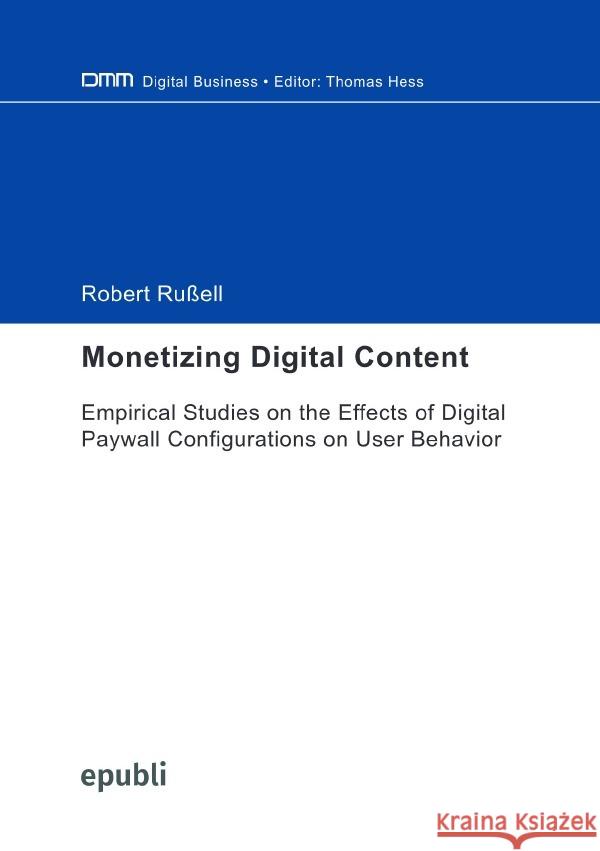Monetizing Digital Content » książka
Monetizing Digital Content
ISBN-13: 9783754953273 / Angielski / Miękka / 176 str.
The media industry was among the first affected by digitization, leading to challenging economic circumstances. In particular, news publishers have faced high losses in revenue from traditional sources, while digital advertising revenues have proven to be insufficient to offset these losses. Thus, news publishers adapt their content monetization strategies by means of digital paywalls. These instruments regulate users' access to the website by separating free from paid content. Hereby, the news publishers' goal is to convert non-paying website visitors into subscribers and thus to establish a sustainable revenue stream in the digital environment.However, the right configuration of a digital paywall is important because this instrument not only provides sales revenues, but also decreases advertising revenues. The dissertation therefore investigates the impact of the digital paywall configuration on user behavior. The foundation is an understanding of the paywall systems' architecture with central technological functionalities that allow configuring the digital paywall solution in various ways. Three empirical studies reveal the impact of configuration parameters on the behavior of users and suggest design principles to improve news publishers' content monetization by configuring digital paywalls. Accordingly, the dissertation adds to Information Systems and Marketing literature on content monetization of digital information goods and provides insights for practioners on general freemium model design but also specific digital paywall configurations.
The media industry was among the first affected by digitization, leading to challenging circumstances. The dissertation investigates the impact of the digital paywall configuration on user behavior.











